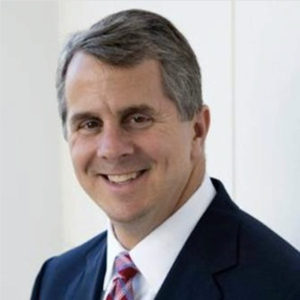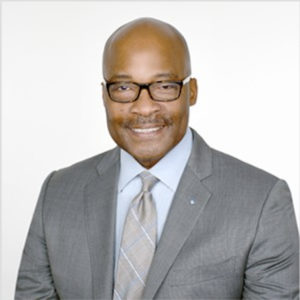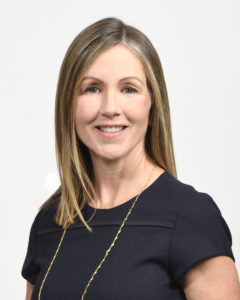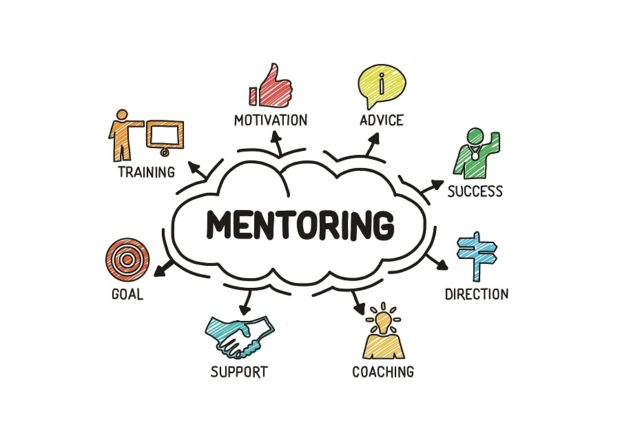When QBE North America Chief Operating Officer Daniel Franzetti reached out to an executive for some advice early in his career, he didn’t get what he expected. In fact, the would-be mentor’s unwelcoming attitude pushed Franzetti in the direction of do-it-yourself career development.
Franzetti’s experience couldn’t be more different from that of Zurich North America’s leader of human resources, Brian Little. For Little, mentors showed up voluntarily, even before he entered the business.
Hamilton Re CEO Kathleen Reardon has had better experiences with mentors too. But she has also taken deliberate steps to shape her own career destiny. And all three stress the need to pay it forward.
Here are the stories they shared with Carrier Management in written responses to questions about mentorship.
***
 Daniel Franzetti, COO, QBE North America
Daniel Franzetti, COO, QBE North America
I vividly remember a point early in my career when I asked a senior executive how he was thinking about my career development and being somewhat taken aback by the response. He told me that he was not thinking much about my career. He was spending his time thinking about his career, and that I should do the same for myself.
It sounded like a cold answer, but it proved very helpful, because from then on I doubled down on setting goals and deepening and broadening my capabilities.
My approach to learning and growing starts with thinking about the job I want to be doing two, three, perhaps five years from now. Next, I determine the skills and relationships I need to do that job, and then I develop a detailed plan and timetable for acquiring them. To keep myself honest, I review my progress monthly.
These are habits I work to pass on at QBE.
***
 Brian Little, Head of HR, Zurich NA
Brian Little, Head of HR, Zurich NA
I wasn’t sure I wanted a long-term career in human resources until I came across a great mentor. Not only did he show me the professionalism of the role, he helped me understand how I could excel in the field. He also allowed me to get additional exposure and opportunities.
Even though opportunities came very early in my career—and sometimes came with frustrations—I was able to talk to my mentor and help sort it out and [learn to] make the most of the situation. My mentor saw in me some of the challenges he had at a similar career phase. It was a great relationship because we had an understanding of what I wanted to do and how I could have a similar career in the future.
I even had mentors when I was in high school. I didn’t really know what I wanted to do. An older gentleman that I attended church with but didn’t know well pulled me aside and told me that I really needed to go to college. Where I grew up, not all teenagers planned on going to college; many went right to work. He said to me, “You have something special. I want to make sure you understand that.”
And he invited me to speak with him at his job. I had a chance to see a big professional office. I was able to look around and think, “This could be me one day.” He always made sure every time he saw me that I was on the right track. Even when I was in college, he would just pull me aside and say, “How are things going?” And those little words of encouragement really helped me continue to grow and not only finish college but also excel.
***
 Kathleen Reardon, CEO, Hamilton Re
Kathleen Reardon, CEO, Hamilton Re
While I didn’t have official mentors, I have been influenced—sometimes without realizing it—by everyone I interacted with.
Looking back, I’d describe my mentorships as intuitive, meaning I paid attention to several people to emulate or to avoid behaviors. The wisdom I’ve since gained is that being acutely aware of everyone you interact with and being mindful of the behaviors that are influencing helps you integrate mentorship into other aspects of your career tools.
Learn to recognize opportunities to be mentored. Mentoring is most effective when leveraged deliberately and complemented with other career tools.
There’s mentorship, and then there’s sponsorship. More powerful to consider as a career tool is the combination of organized and deliberate use of mentorship with sponsorship. While mentoring has been and continues to be a valuable guiding principle in my career, I’ve realized that it’s critical to have specific sponsors ready and willing to support and advocate for me, provide me with exposure to challenging growth opportunities, and pull me into other environments to grow my skills.
***
All three leaders had specific leadership development advice to offer.
Be willing to make lateral moves. “A critical part of that progress has been a willingness to move laterally as well as up. It’s one of the best ways to learn and gain new perspectives,” said Franzetti.
“Over the past 20 years, I’ve taken lateral opportunities as often as upward ones.”
Consider an executive coach. “Adding the support of an executive coach to your career toolkit can further develop your leadership skills,” said Reardon. “I’ve worked with coaches that offer a lens outside of insurance, which helped me to broaden my views as a leader, fine-tune how I navigate within my CEO role and schedule my time effectively where I’m most productive.”
“Working with a coach who understands your strengths and helps you to identify areas of improvement can be invaluable.”
Make time for career development. “Whether you have access to an executive coach or not, my suggestion is to be deliberate about building in time to focus on your career path,” Reardon said.
Pay it forward. “The combination of having a mentor early in my life and a mentor in the middle of my career has helped me really think about other people and how I could pay it forward as a mentor,” wrote Little. “I’ve also been a sponsor, and I still do that today. There are a number people I’ve met throughout my career who I know would be really great for Zurich if they had the right opportunity. All it really takes sometimes is a little bit of advocating on my part to ensure that they at least get considered for an opportunity.”
“When I’m able to bring the employee to the table, oftentimes leaders really take a look at the individual and, perhaps, provide them an opportunity that they may not have had before,” he said.
“Anyone who has been in a senior role should see themselves as a mentor, coach and sponsor at the same time and understand the value they can bring to the table.”
Franzetti stresses the value of mentors and the need for self-directed career advancement plans. “I mentor about six people right now, and we encourage all employees to create development plans and hold regular feedback sessions with their managers and peers,” he said. “In the areas I manage, we stress having manager conversations monthly.”
“In the end, there’s no better learning method than asking for constructive feedback. You just need the courage to listen and act upon it.”
Never underestimate the power of community. Said Reardon: “I’m lucky to have a group of career-focused women in my network. Their support and honesty have been a constant source of energy for me.”
“This community of senior women came together organically early in my career. It crosses disciplines and generations—and our differences make our connection that much stronger. In fact, Women in Reinsurance (WiRe) was born from that early networking so that we could pass on our collective knowledge and support to other women in the industry.”





















 20,000 AI Users at Travelers Prep for Innovation 2.0; Claims Call Centers Cut
20,000 AI Users at Travelers Prep for Innovation 2.0; Claims Call Centers Cut  Nearly 26.2M Workers Are Expected to Miss Work on Super Bowl Monday
Nearly 26.2M Workers Are Expected to Miss Work on Super Bowl Monday  Preparing for an AI Native Future
Preparing for an AI Native Future  What Analysts Are Saying About the 2026 P/C Insurance Market
What Analysts Are Saying About the 2026 P/C Insurance Market 






